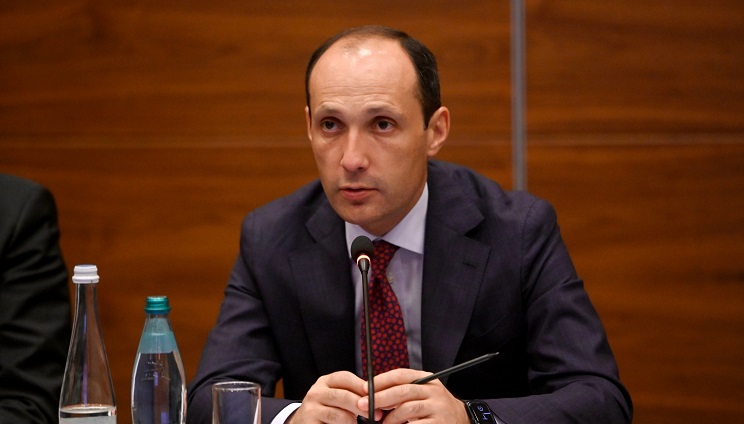Economy Minister slams opposition for “anti-tourism” campaign

The Georgian Economy Minister Levan Davitashvili said on Monday the tourism sector employed thousands of Georgian citizens and its development was in the interests of the public. Photo: Economy Ministry press office
Levan Davitashvili, the Georgian Minister of Economy and Sustainable Development, on Monday slammed the country’s ex-President Mikheil Saakashvili and former members of the United National Movement Government for their calls to authorities to impose visa requirements for Russian citizens, accusing the opposition of aiming to hinder domestic tourism development.
Speaking to the media following a scheduled Cabinet meeting, Davitashvili dismissed the opposition’s allegations on the “uncontrolled and increased influx” of Russian tourists into Georgia on the backdrop of the country’s war in Ukraine, stressing that while in office Saakashvili and the UNM “were inviting Russian tourists several days after the 2008 war [between the two countries] and personally meeting them at the border”.
The tourism sector recovery stands at 65.3 percent [recovery] compared with [the pre-pandemic] 2019. The comparison with 2019 is very important, because at that time we had a peak. Although the Georgian economy has completely recovered, the process is still in progress for the tourism sector”, Davitashvili said, adding that compared with 2019, the number of arrivals of Russian nationals, as well as visitors from other countries, had decreased.
Several opposition parties, including Saakashvili’s UNM, called on the Government last week to impose visa requirements for Russian citizens, pointing at “security challenges”.
The opposition cited the recent survey of Transparency International Georgia, which suggested that 240,000 Russian citizens had arrived in Georgia over the past seven months.
In comments on the reports, Georgian Parliament Speaker Shalva Papuashvili last week said it was “wrong and misleading” to compare the figures with the numbers during the early stages of the pandemic, noting travel restrictions had been in place during the latter period.
 Tweet
Tweet  Share
Share